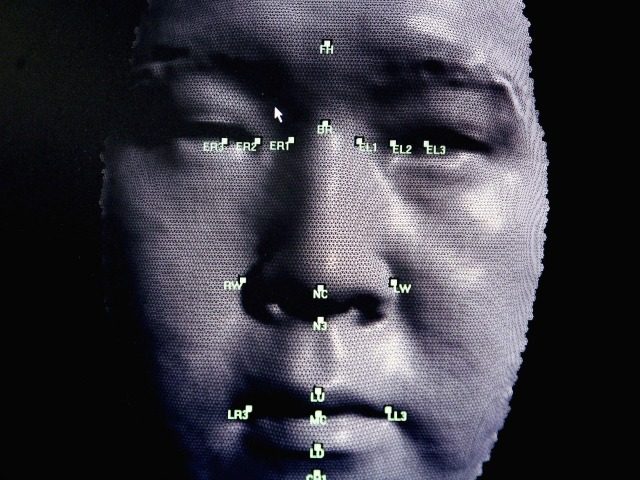A Texas school district hopes to incorporate facial recognition technology and tracking software into its current security suite. This decision comes in response to the deadly high school shootings that happened in Parkland, Florida, and Santa Fe, Texas, earlier this year.
The Fort Bend Independent School District tasked a 40-member school safety advisory committee with evaluating security enhancements for their 75 campuses and 76,000 students. At a June 18 board meeting, the committee first proposed folding in this cutting-edge technology to beef up its Safety and Security Master Plan.
“If somebody makes a threat in the community, we could plug their face in and if they pass in front of any of our cameras it would give us an alert right away,” said Fort Bend ISD Police Chief David Rider. He gave the June presentation.
The committee, comprised of students, staff, parents, community members, security experts and two Fort Bend ISD trustees, said facial recognition systems could identify sex offenders, suspended or expelled students, disgruntled former employees, or anyone considered dangerous and alert police on a security camera at any campus or district facility.
The Fort Bend Star reported Rider called facial recognition software a “preventable measure others are using.”
While this kind of surveillance is more commonly used in airports and casinos and by law enforcement agencies, other U.S. school districts already approved adding high-tech cameras and tracking software into their security protocols. The Magnolia School District in Arkansas signed off on spending nearly $300,000 for a facial recognition system that serves two secondary schools. The Lockport City Schools in upstate New York allocated $1.4 million from a $4 million 2014 state grant to install 300 high-tech facial recognition cameras on its eight campuses.
The Niagara Gazette reported Lockport schools chose software developed by SN Technologies known as Aegis. Online, the Canadian tech company said it developed “biometric applications to make the world a safer place” and described security products designed for schools as “to protect students and staff while on property.” They can also identify weapons.
However, the New York chapter of the American Civil Liberties Union (NYCLU) criticized Lockport schools. The group called the software invasive and inaccurate, suggesting it could wrongly identify students. WKBW reported the NYCLU filed a Freedom of Information Act request for details from the school district on how and where they intended to use the software. They also wanted to know who would have access to sensitive student data and if a third party could gain access to the system, potentially putting this information at risk.
Lockport Superintendent Michelle Bradley responded that existing security camera footage remains stored on district servers for 60 days. She said facial recognition technology would not alter ongoing protocols. She indicated the upgraded technology would only issue an alert to school district officials if any recorded data matched an image entered into the system and flagged it as a potential security threat. Bradley said concerning individuals were sex offenders, suspended or expelled students, terminated employees, and people with firearms. She stated no third party vendor would have access to the data.
NYCLU Executive Director Donna Lieberman disagreed with the district’s security plan: “Lockport is sending the message that it views students as potential criminals who must have their faces scanned wherever they go. This will have a chilling effect on school climate throughout the district and sow distrust between students and school officials.”
In Texas, the use of facial recognition technology could raise concerns over potentially increased data collection and impinged student privacy as well as overzealous zero tolerance policies that derail young lives onto the school-to-prison pipeline.
“No single security measure will solve all the things we want to accomplish,” noted Rider previously. He said they had a “multidisciplinary team.” In fact, the Fort Bend ISD proposed security upgrades specifically allocate $8.6 million to fencing around portable campus buildings, metal detectors, classroom door locks, vehicles, and hiring more campus police. It also budgets in mandatory student ID badges that can be bar coded to include student information for use in the lunchroom and library. They may even contain health information.
Other items under consideration by Fort Bend ISD come from the School and Firearm Safety Plan released by Governor Greg Abbott. They include arming school personnel already licensed to carry and/or instituting a marshal program and the “I Watch Texas” app to anonymously report safety concerns. The district may use Civilian Response to Active Shooter Events (CRASE) training. The Fort Bend newspaper noted Rider said a mental health component would be part of their security plan to manage threats.
Fort Bend ISD trustees expect to vote on the facial recognition system, the other security items, as well as on new school buses, construction and renovations, among other improvements, at the August 13 board meeting. If approved, the entire referendum could total $1.7 billion, according to the school board recap, when district taxpayers vote in November.
Follow Merrill Hope, a member of the original Breitbart Texas team, on Twitter.

COMMENTS
Please let us know if you're having issues with commenting.